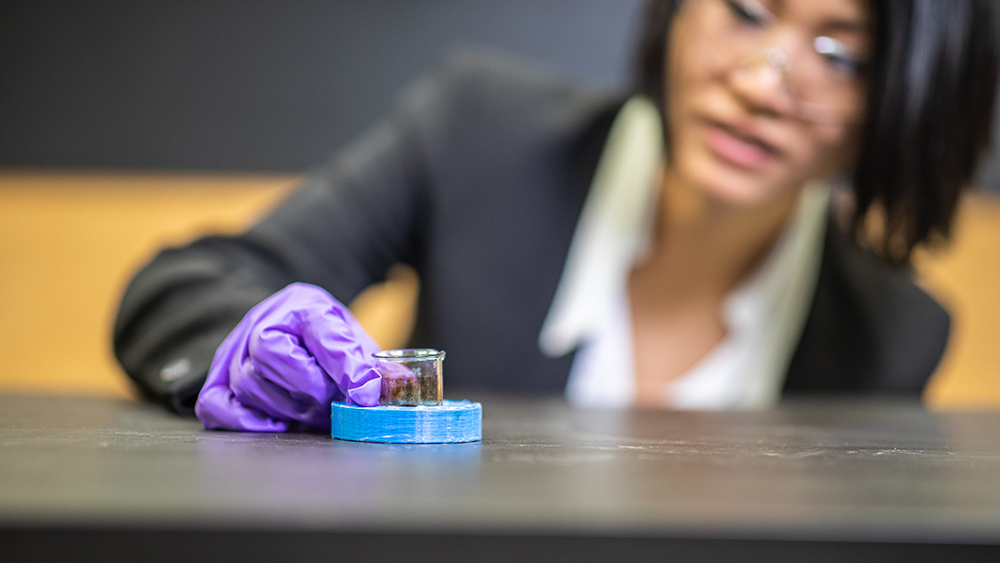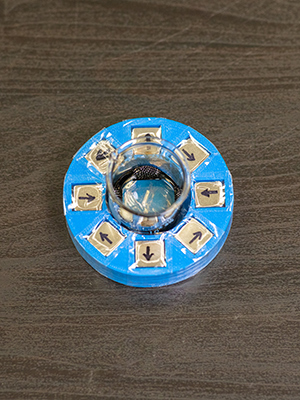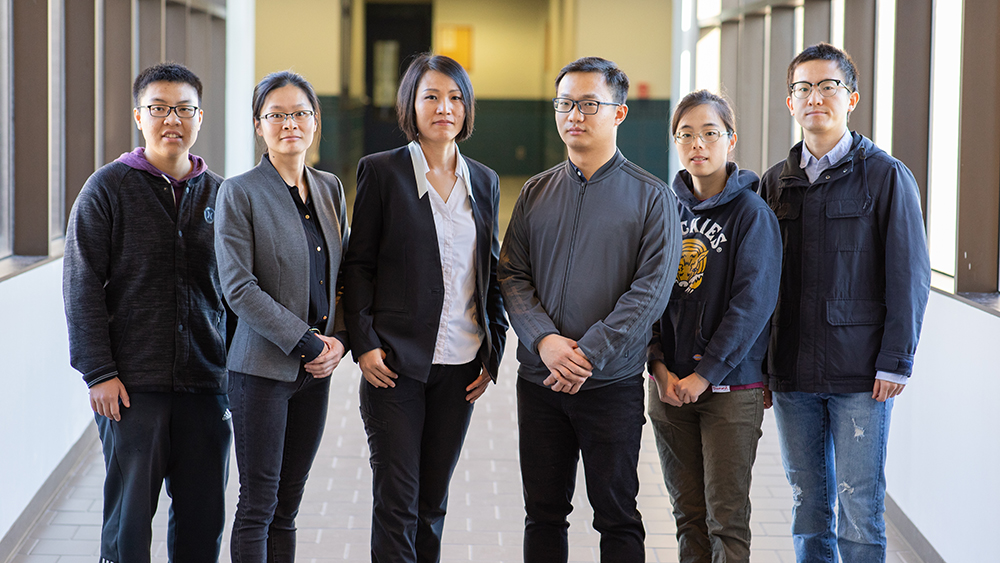
A deeply personal motivation is helping to drive a Texas A&M University researcher in her pursuit of better therapeutic technologies that could provide earlier diagnosis and more detailed progression tracking for neurodegenerative diseases such as Parkinson's and Alzheimer’s.
Dr. Ya Wang, associate professor and Morris E. Foster Faculty Fellow II in the J. Mike Walker '66 Department of Mechanical Engineering, is working to bridge the gap between science, engineering and applications in health technologies through her research into the neurodegenerative diseases.
Her research is supported through the National Science Foundation Faculty Early Career Development Program (CAREER) awarded in 2018.

It was Wang's relationship with a close family member who has lived with Parkinson's Disease for more than 20 years that sparked an interest for her in investigating potential technologies that could one day contribute to the discovery of a cure.
"I am hoping to develop therapeutic technologies that might ultimately lead to the cure of neurodegenerative diseases such as Parkinson's disease," Wang said. "This involves an understanding of how the robot-like magnetic nanoparticles transport in the brain environment and can utilize proximity sensing and machine learning."
With no current cure or reliable early diagnosis methods, the objectives for Wang's research are two-fold: to develop advanced proximity sensors for early diagnosis by monitoring cognitive and activity evolutions of high potential subjects and develop innovative non-invasive therapeutic strategies for targeting and regenerating brain cells using biodegradable gold-coated magnetic nanorobots.
The nanobots Wang's lab is working with are small enough to cross the blood-brain barrier, yet large enough to be accurately controlled by external magnetic fields. This technique could be used on a range of neurodegenerative diseases that inflict a progressive loss of neurons in the brain.

"Technologies for early detection and non-invasive stimulations of specific inhibitory neurons deep in the brain have long been desired for clinical treatment of neurological diseases," she said. "However, to date neuroscientists have largely focused on biological phenomena, with little engineered tools available for qualifying the disease progression -- mild cognitive/activity impairment, neuron-degeneration -- in an accurate manner, thus limiting the translation to clinical practice."
Nearly 5.8 million Americans are living with Alzheimer's disease and just under 1 million suffer from Parkinson's disease, with both disorders projected to see an increase in the coming years. Wang is hopeful her research helps generate progress toward the development of a successful treatment for these fast-spreading diseases.
"I hope the research conducted by my team can overcome intrinsic trial-and-error approaches, usher biotechnology into a new era of early diagnosis, precision medicine and can move closer to clinical success," Wang said. "Combined with recent advances in artificial intelligence, our work also holds a high potential for contributing to the development of nanorobotics, lab-on-the chip and personalized medicine."